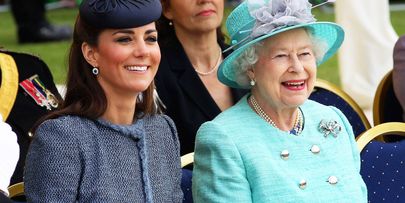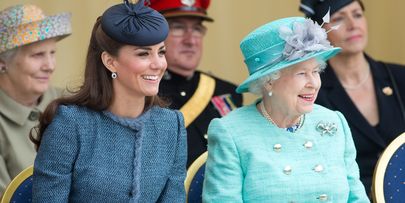The Queen Helped Change the Law to Hide Her "Embarrassing" Wealth from the Public
The Queen's lawyer reportedly lobbied the government.

- The Queen reportedly lobbied the British government in the 1970s to change a draft law that could enable the exposure of her vast private wealth, according to a new investigation by the Guardian.
- The government changed the law after the Queen's intervention, allowing the monarch to hide her wealth in a "state-backed shell corporation."
- The Queen's private wealth is estimated to comprise hundreds of millions of pounds.
According to a new investigation by the Guardian, the Queen lobbied the British government in the 1970s to change a draft law that could have revealed her "embarrassing" private wealth to the public. Government memos in the U.K.'s National Archives reportedly reveal the Queen's private lawyer successfully pressured lawmakers to change proposed transparency legislation that could have exposed her shareholdings. The full extent of the Queen's private wealth has never been revealed to the public, but according to the Guardian, it's estimated to comprise hundreds of millions of pounds.
The newspaper reports that after the Queen intervened, the government modified the draft law to include a new clause, excluding companies employed by "heads of state"—including the monarch—from new transparency legislations. That clause reportedly enabled the Queen to hide her investments and shareholdings in a "state-backed shell corporation."
The Guardian discovered the Queen's intervention while investigating her use of a parliamentary procedure named "Queen's consent," which "requires ministers to alert the Queen when legislation might affect either the royal prerogative or the private interests of the crown." The newspaper claims that the Queen and her lawyers have used the procedure to "secretly lobby" for changes to proposed laws that could affect her.
In a statement to the Guardian, Buckingham Palace said, "Queen’s consent is a parliamentary process, with the role of sovereign purely formal. Consent is always granted by the monarch where requested by government."
“Whether Queen’s consent is required is decided by parliament, independently from the royal household, in matters that would affect crown interests, including personal property and personal interests of the monarch," the statement continued. "If consent is required, draft legislation is, by convention, put to the sovereign to grant solely on advice of ministers and as a matter of public record."
Related Stories


Get exclusive access to fashion and beauty trends, hot-off-the-press celebrity news, and more.

Emily Dixon is a British journalist who’s contributed to CNN, Teen Vogue, Time, Glamour, The Guardian, Wonderland, The Big Roundtable, Bust, and more, on everything from mental health to fashion to political activism to feminist zine collectives. She’s also a committed Beyoncé, Kacey Musgraves, and Tracee Ellis Ross fan, an enthusiastic but terrible ballet dancer, and a proud Geordie lass.